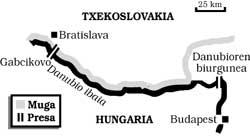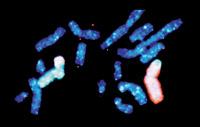Science in the twenty-first century: a new commitment
1999/09/01 Elhuyar Zientzia Iturria: Elhuyar aldizkaria

From 26 June to 2 July, the International Science Congress was held in Budapest, Hungary, under the title Science in the twenty-first century: a new commitment.
At the conference promoted by the United Nations Organization for Education, Science and Culture (UNESCO) and the International Council for Science (ICSU), experts from around the world discussed science and scientific knowledge and, in the end, agreed on a statement.
In this second half century the relations between science and society have evolved and continue to evolve, due to various factors (significant increase in knowledge in all scientific fields, increase in the level of communication in both quantity and speed, greater number of interstate organizations and structures, lower involvement of states in the economy and social affairs, reconduction of many studies after the Cold War, etc. ). On the other hand, the human being has never had so much knowledge, information and power; he has never found, improved and created so many things. But the use of all this requires more "prudence" than ever. The relationship between scientific researchers, educators, producers of technology and the user or receiver of all this is more complex than in the past, and in it more agents and agents participate who are not the researchers themselves.
After the meeting organized by UNESCO and ICSU to debate and debate on all this, the last day the attendees published the Declaration on the Use of Science and Scientific Knowledge. The statement is based on four principles:
1) science for knowledge; knowledge for progress; 2) science for peace; 3) science for development and 4) science for society and society.
For the development and development of these bases, the document “Scientific Agenda – Guidelines of Action” was agreed and UNESCO and ICSU were requested to transmit the declaration and document to their General Boards.

The declaration and document should include the accession of the General Assembly of the United Nations. The objective is for both institutions to implement complementary actions in their programs, and to achieve the adherence of all stakeholders involved, especially those related to the United Nations, in order to achieve international coordination and cooperation in science.
For more information and the full text of the declaration and document, please refer to the UNESCO website http://www.unesco.org/science/wcs/eng/. 1.

Gai honi buruzko eduki gehiago
Elhuyarrek garatutako teknologia





